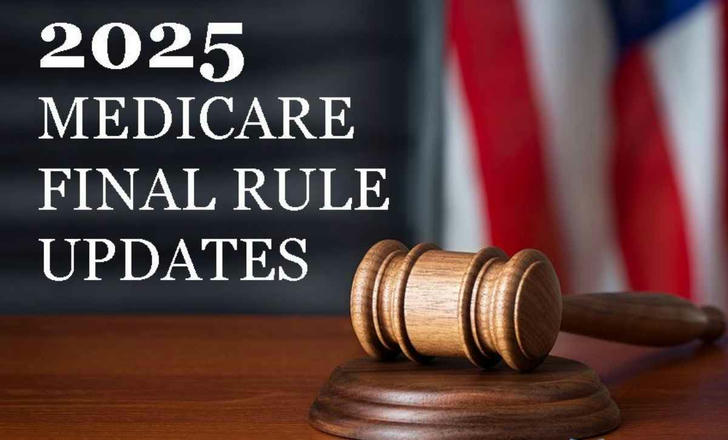7 Key Medicare Changes and Their Impact on Seniors!
Medicare plays a crucial role in ensuring affordable healthcare for millions of Americans, particularly seniors and individuals with disabilities. In 2025, several significant adjustments are coming to Medicare that will directly impact beneficiaries’ lives. This article will explore these changes and what they mean for those relying on Medicare for healthcare coverage.

Key Medicare Changes in 2025?
1. $2,000 Out-of-Pocket Cap: Financial Relief for Chronic Conditions
Starting in 2025, seniors will never pay more than $2,000 annually for prescriptions under Part D, a historic cap replacing unlimited cost burdens.
65–74: Active retirees managing diabetes or hypertension gain predictability. Example: A 70-year-old on Ozempic and blood pressure meds saves $3,500/year.
75–84: Those on fixed incomes with 5+ prescriptions avoid choosing between medications and essentials.
85+: Frail seniors facing costly cancer or Alzheimer’s therapies are shielded from bankruptcy.
Why It Matters: 1 in 3 seniors skips doses due to costs. This cap transforms anxiety into assurance.
2. Goodbye, Donut Hole: Seamless Drug Coverage
The infamous Part D coverage gap—where seniors paid 25% of drug costs—is eliminated. Subsidies now apply year-round.
65–74: Newly diagnosed patients (e.g., rheumatoid arthritis) avoid mid-year sticker shock.
75–84: Stability for those juggling heart meds, insulin, and inhalers.
85+: No more rationing $10,000/year specialty drugs like Enbrel.
Stat to Know: In 2023, 25% of seniors hit the donut hole; now, 100% coverage kicks in post-deductible.
3. Weight Loss Drugs: A Double-Edged Sword
Medicare now covers Wegovy and Zepbound for seniors with obesity (BMI ≥30) or weight-related conditions like diabetes.
65–74: Boosts mobility for active seniors. Example: A 68-year-old shedding 15% body weight reduces knee replacement odds.
75–84: Lowers heart disease risks but requires monitoring for muscle loss.
85+: Limited use due to frailty concerns.
Controversy: Critics argue long-term costs could strain Medicare, but proponents cite reduced hospitalizations.
4. Medicare Advantage: Smarter, Faster, Fairer
Prior authorization reforms speed up approvals, while telehealth and dental benefits expand.
65–74: Tech-savvy retirees embrace virtual visits for routine care.
75–84: Fewer paperwork delays for stroke or COPD patients.
85+: Challenges remain for those less comfortable with apps.
Expert Insight: “MA plans are now competing on service, not just price,” says healthcare analyst Dr. Linda Chen.
5. Midyear Statements: Clarity in Complexity
Insurers must send midyear updates explaining coverage tweaks.
All Ages: Reduces confusion, but 85+ seniors often need caregivers to decode jargon like “formulary tiers.”
6. Caregiver Support: Recognizing Unsung Heroes
Respite care, training, and financial aid expand for families supporting seniors.
65–74: Helps those caring for spouses with Parkinson’s.
75–84: Respite care prevents burnout for dementia caregivers.
85+: Indirect relief through better-supported helpers.
Stat: 53% of caregivers for 85+ seniors face severe financial strain.
7. Mental Health: Breaking the Silence
Incentives lure more therapists into Medicare networks.
65–74: Addresses post-retirement depression.
75–84: Eases grief after losing a spouse.
85+: Critical for dementia-related behavioral support.
Quote: “Loneliness is as deadly as smoking,” warns the U.S. Surgeon General.
Who Benefits Most? A Generational Breakdown
65–74: Tech-driven care and weight loss drugs.
75–84: Prescription caps and caregiver aid.
85+: Financial safeguards and caregiver support.
3 Steps to Maximize Your Benefits
• Audit Your Plan: Compare 2024 Part D/MA options during Open Enrollment.
• Claim New Perks: Schedule a telehealth visit or caregiver training.
• Decode Statements: Mark your calendar for midyear updates.
Conclusion: A Shift Toward Prevention and Dignity
Medicare’s 2024 updates reflect a pivotal shift: investing in prevention, not just treatment. For seniors, this means fewer trade-offs between health and financial security. While challenges like digital literacy persist, tools like SHIP counseling can bridge gaps. As 72-year-old retiree Martha Jacobs puts it: “Finally, Medicare sees us as people, not patients.”
